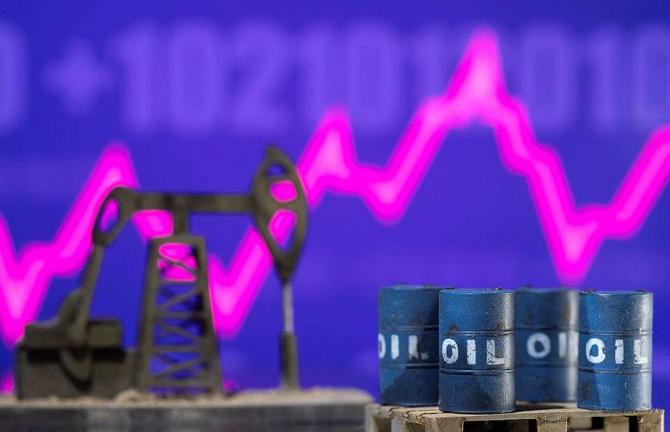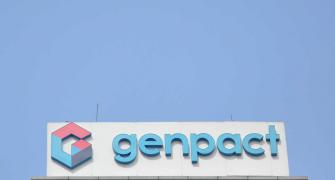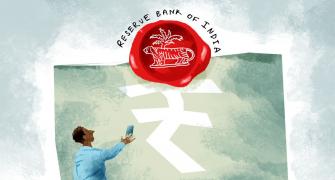The ministry of finance is likely to assume crude oil price to remain within $85 per barrel while estimating subsidies for the Interim Budget 2024-25 (FY25), to be presented on February 1.

Brent crude prices moved up on Thursday, ending at $78.9 per barrel.
Crude oil and cooking gas prices, which move in tandem, impact fertiliser and cooking gas subsidies, constituting 53 per cent of the government's total subsidies.
Cooking gas subsidy may go up next year as the government has decided to expand the Pradhan Mantri Ujjwala Yojana to provide additional 7.5 million new connections in the next three financial years beginning FY25 to take the total number to 103.5 million.
Higher crude oil prices also result in increased input costs for companies.
This may impact their profitability and subsequently government revenues if not adjusted in output prices.
“We expect crude oil to remain in the range of $75-85 per barrel.
"However, things are not within our control and any deepening of the crisis in West Asia could overturn our assumptions.
"We will have another chance to review the situation before the full FY25 Budget is presented after the general elections,” a government official said, requesting anonymity.
After presenting the Economic Survey for FY23 last year, chief economic advisor in the finance ministry, V. Anantha Nageswaran, told reporters the government expects crude oil prices to stay below $100 per barrel in FY24.
A Reuters poll of 34 economists last month showed international oil prices are likely to stay near $80 a barrel in 2024, as analysts predicted weak global growth would cap demand, while geopolitical tensions could provide support.
“So far we have not seen any significant impact of the Red Sea crisis on crude oil prices.
"Spike for a few days won’t be problematic as long as the average crude oil price remains around $80 per barrel,” said Devendra Kumar Pant, chief economist at India Ratings.
In the wake of the conflict in West Asia, crude oil prices were volatile in 2023, averaging $83 per barrel, down from $100 per barrel in 2022.
Production cuts by the Organisation of the Petroleum Exporting Countries plus countries that includes Russia (Opec+) have mostly been offset by robust output elsewhere, including in Iran and the United States.
The World Bank in its latest Global Economic Prospects released Tuesday said oil prices were expected to edge down to $81 per barrel in 2024 as global activity slows and China’s economy continues to decelerate.
“An escalation of the conflict in the Middle East (West Asia) is a major upside risk to oil prices.
"Further extensions of production cuts by Opec+ to beyond an expected phaseout of cuts in the first quarter of 2024 and stronger-than-expected demand could also result in higher prices,” it said.
Depicting an alternative scenario of disruptions in crude oil supply arising from an escalation of conflict in West Asia or elsewhere, the World Bank said oil prices may surge 30 per cent above the baseline in the March quarter of 2024 and 20 per cent on average in 2024.
“The initial 30 per cent increase is calibrated to mimic price changes seen during similar past episodes.
"After the first quarter of 2024, oil prices are assumed to gradually return to the baseline.
"As a result of the jump in oil prices, global consumer price inflation increases by 0.8 percentage point relative to the baseline in 2024, before easing in 2025.
"Rising gasoline prices reduce real household incomes, while higher input costs drive businesses to curtail investment,” it added.










